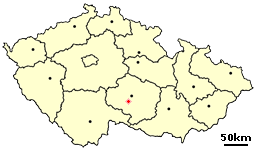BRAZIL INSIGHT
SPECIAL REPORT
Not even the economic downturn enveloping the United States or the malaise lingering in neighboring Argentina appears able to damage the health of the Brazilian economy this year. The South American giant is drawing praise from economic experts at home and abroad as interest rates, now hovering just above 15% are expected to dip to 13.5% by yearend, and as inflation, currently at 6% after the four-digit figures of the early 1990s, declines to 4%. Economists also point to an unemployment rate of just over 7% and a gross domestic product that will increase by 4.5% in 2001 as signals that the Brazilian economy is strong as a bull.
And while the pace of privatizations will slow this year after a decade of selloffs that transferred more than $70 billion worth of government assets into private hands, Brail is still expected tos ell at elast $4 billion in state assets this year and to attract more than $20 billion in foreign direct investment.
"Growth for the third and fourth quarters of last year has been revised upward so the GDP rose by 4.2% last year. Unemployment will did down to 7.1%. Local it trest rates are on the way down, and sentiment is picking up among consumers, says Lawrence Krohn, chief economist for Latin America at ING Barings in New York. "The economy has great momentum going forward into 2001:'
The posting of favorable economic statistics, coupled with the central government's effort to increase transparency in the stock market and strengthen corporate governance practices, is generating interest among foreign investors.
"There's increasing talk among corporations to increase the corporate governance standards. There's better transparency in financial statements and active investor relations programs," says Orlando Viscardi, director of American depositary receipts at Citibank in Sao Paulo.
The move toward transparency, which has been building for several years, took a step forward in December when Bovespa announced the creation of the Novo Mercado, or new market. The first step is the merging of all nine Brazilian stock exchanges into the Sio Paulo Stock Exchange, which is expected to begin trading in the spring of this year. To shift to the new market, companies now trading on the Bovespa must first comply with a series of standards.And to ease the transition, the plan creates two categories of companies that have achieved intermediary compliance with the new market requirements.
In a January investment report issued by the Sao Paulo office of Santander Central Hispano, analysts said none of the current Brazilian companies can comply with all of the new standards. They expect a long-term transition period as the new market gathers momentum and companies adjust to the changes, which are designed to provide more rights for minority shareholders.
Another government effort to protect minority shareholders is a legislative proposal, the Brazil Corporate Law. Final approval of the law-which is designed to make the Brazilian capital markets more transparent, efficient, and enforceable-has been held up by conflicts among companies, shareholders, and the government. In addition to changing corporate governance regulations, the law would increase the independence and power of the CVM, the Brazilian equivalent of the Securities and Exchange Commission in the United States.
While acknowledging that the changes will take time to implement, Viscardi says the shifts have already increased confidence among foreign and domestic investors, who will gain a more level playing field against the companies and individuals that traditionally hold large blocks of stock in Brazilian companies.
"Merger and acquisition activity will remain strong," Viscardi says. "There's still a large universe of companies targeted for consolidation."
One negative factor in the economic picture is the government's decision to reduce the surplus included in the central government budget, which includes revenues derived from treasury, social security, and central bank operations.
"People are paying attention to every signal. This won't affect the market immediately, but it makes the government's fiscal situation a little weaker," says Simone Passim, a Brazilian economist for UBS Warburg in Rio de Janeiro.
Passini says the government is not adhering to sound fiscal policy by depending upon surpluses from privatized state companies.
late last year, for example, the government sold off the Sao Paulo state bank, Banco do Estado de Sao Paulo, to Banco Santander Central Hispano. The purchase of Banespa, which has total deposits of $5.74 billion, consolidated Banco Santander's position as the third-largest private bank in Brazil. But the state is trying to hold on to some of its assets as the Sao Paulo state legislative assembly approved a bill that would remove the accounts of more than a million state employees from Banespa, violating the rules of the privatization auction.
While the Brazilian government expects a far higher figure, UBS Warburg estimates the government will pull in $3-4.5 billion in 2001 from the sale of state-owned assets.
The sale of three wireless telephone licenses last month generated more than $1.3 billion.The sell-off of facilities in the electric utility sector is expected to generate nearly $3 billion, according to figures supplied by UBS Warburg. That includes $1.5 billion from the sale of Copel, an electrical distribution facility; $500-600 million from the sale of Furnas, an electricity generation facility; and $600 million from the sale of Eletronorte, another electricity generation facility. The sale of shares in Companhia Vale do Rio Doce, a mining firm known as CVRD, is expected to generate about $1 billion, while the sale of IRB, a reinsurance company, will produce $250-300 million.
Paula L. Green is a New York-based contributor to Global Finance. E-mail: news@gfmag.com
Copyright Global Finance Media Inc. Mar 2001
Provided by ProQuest Information and Learning Company. All rights Reserved



